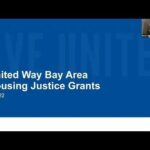Search
THE CHILD TAX CREDIT: AN EQUITABLE SOLUTION TO HELP KIDS THRIVE
June 30, 2021

By: Kevin Zwick
A year ago this month, I came to United Way Bay Area inspired by this organization’s 100-year history tackling the root causes of poverty head-on through employment, financial stability, and meeting basic needs. As a father myself, one of the most upsetting inequities in our society is to see families with children struggling to make ends meet. At the heart of why I work in the nonprofit sector, and why I was inspired to join United Way Bay Area, was to join with others on fixing this contradiction: how a country and a region like ours with so many resources could allow so many families to struggle in poverty.
For many families in our region, meeting basic needs has been a constant struggle for far too long. Here in the Bay Area, one in five families with children under the age of five lives in poverty, and 89% of these families have at least one working adult. Many more have been left out of social safety-net programs because they earn more than the cutoff for federal assistance. This week, our partners at United Way of California released the Real Cost Measure, which indicated that here in the Bay Area, over 600,000 families struggle to earn enough to cover all their household needs.
This has had a tragic and disproportionate impact on Black and Latinx children and their families, who have faced employment and housing discrimination for generations. In an earlier post, I talked about the racist housing policies that denied mortgages to Black homeowners, created and sustained segregated neighborhoods, and created an affordable housing crisis that has disproportionately impacted Black, Latinx, Indigenous and people of color the most. Like so many other root causes of poverty, this has made the current situation that much more untenable, as families today must struggle even harder to find ways to afford to stay in the Bay Area.
Fortunately, the federal government has started stepping up. Last week, millions of families received a down payment on their Child Tax Credits for 2022 as part of the American Rescue Plan, lauded by local representatives and signed into law earlier this summer by President Joe Biden. Under the program, families who filed tax returns in 2019 or 2020 will receive half of their 2022 Child Tax Credit —up to $300 per child per month and a maximum of $1,800—before the year’s end.
Families will not only get their money early, but they’ll also receive more benefits than they have in previous years – up to $3600 per child. And it couldn’t come at a better time. As the economy recovers, working families still struggle to piece back together the income they lost during the pandemic. The expanded Child Tax Credit means that for these next few months many parents might not have to choose between food and rent, books and shoes, childcare and prescriptions, or tuition and car repairs. Instead, these families can temporarily breathe a sigh of relief, and begin planning again for their future.
This enhanced Child Tax Credit make perfect sense now—especially for Bay Area families.. Working parents, previously unable to qualify for benefits because of national income limits, can now access the help they need. Stay-at-home caregivers, some of whom are older, have disabilities, or are unable to work, can also get benefits.
Finally, and perhaps most importantly, the increase in benefits means that working parents and their children will now have a fighting chance. D.B., a mom of two boys, 13 and 8, is just one example. She lives in the East Bay and works full time at a non-profit. She’s also going to school to finish her college degree. She makes $59,000 a year, which is hardly enough to cover the high cost of living in our region. In 2021, she received a Child Tax Credit of just over $4,000, and in 2022 she’ll receive even more. Now she can breathe a little easier because she’ll have a little extra money coming in each month.
As excited as we are with the potential of the Child Tax Credit, there are important challenges that we must address. First, this increased benefit is temporary – Congress needs to act to make the benefit permanent to lift children out of poverty for good. Second, the only way to access these benefits is through the tax code and tax filing – which is a complicated system for most people to navigate. This means that those in our community that might need the benefit the most will have the most difficulty accessing the credit. Policymakers need to provide resources to make sure hard to reach communities have the tools they need to access the credit.
That’s where United Way comes in. Since 2003, United Way Bay Area has offered free tax preparation services through its Earn it! Keep it! Save it! program, so that low- and moderate-income families can receive the refunds and benefits they deserve. Each year, our clients collectively save at least $20 million in tax preparation fees, and receive more than $80 million in federal tax refunds, including the Child Tax Credit.
From our perspective, expanding the Child Tax Credit and making it permanent says that all kids deserve investment, and that no child should live in poverty. The American Rescue Plan, with its temporary expansion of the Child Tax Credit, is a big step forward. According to the Center on Poverty & Social Policy at Columbia University, the American Rescue Plan will cut overall poverty by 30% and cut poverty for Black children by 54%, and for Latinx children by 52%.
Last month, I was honored to take part in a roundtable with Speaker Nancy Pelosi, and representatives from the Children’s Defense Fund and Golden State Opportunity, to talk about the impacts of this policy. I shared that is what can happen when we center the needs of children first. I’m proud to be a part of United Way Bay Area who’s committed to ensuring that all families get the help that they deserve, whether parents are working full-time, part-time, going back to school, or supporting other family members so that they can stay in an equitable Bay Area where all people have the opportunities and resources needed to thrive.
Learn more about how these UWBA programs can help:
Earn it! Keep it! Save it! (EKS)
Call 211 to find the tax preparation location nearest you
Other Resources:
Speaker Pelosi’s roundtable on the Child Tax Credit video


